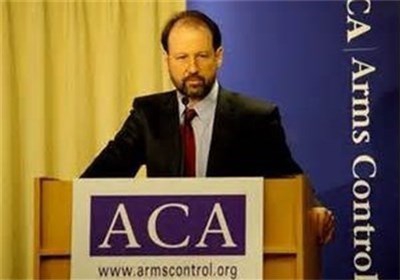Monday 6 July 2015 - 17:09
Story Code : 170774
Iran, sextet should get all details right in nuclear deal: Analyst
While diplomatic negotiations between Iran and the Group 5+1 (Russia, China, the US, Britain, France and Germany- also known as P5+1) over a lasting, comprehensive deal on Tehran's nuclear program have reached a decisive stage in Vienna, Daryl G. Kimball gave an interview with Tasnim, commenting on the requirements of the long-awaited accord and its consequences.
Mr. Kimball is a frequent source for reporters and has written and spoken extensively about nuclear arms control and non-proliferation, and weapons production.
What follows is his answers to a number of questions about the long-awaited nuclear deal:
Tasnim: What is your opinion about the final round of nuclear talks between Iran and the six world powers?
Kimball: These are complex negotiations, but most of the major and most difficult political decisions have already been made and the negotiators are within sight of reaching a final agreement by their revised July 7 deadline.
It is important to get all the details right so that there are no ambiguities or weaknesses in the final agreement that complicate effective and timely implementation - or that can be exploited by hard line opponents of a negotiated solution in Tehran and Washington.
Tasnim: What do you think are the features of a good deal?
Kimball: A final agreement based on the parameters agreed to on April 2 at Lausanne would provide the necessary assurances and verification to show that Iran's program is entirely peaceful, resolve questions about whether some Iranian scientists engaged in nuclear weapons-related experiments in the past, while also respecting Iran's right to have a peaceful nuclear energy program and promptly removing international nuclear-related sanctions.
Both sides in the negotiation -the P5+1 and Iran- have bargained hard, have each made adjustments to their original positions, but both appear to be coming out with an agreement that meets their respective core goals, objectives, and that avoid their respective red lines.
This is an historic moment -both sides have come too far to walk away from an effective, long-term verifiable, win-win deal.
Tasnim: Will a possible nuclear deal mark an end to the confrontation between Iran and the West?
Kimball: Unfortunately, no. There remain a number of deep difference(s) between our two countries, but a win-win nuclear deal promises to remove a major irritant in Iran's trade and security relationship with the West and the entire international community. There will be challenges ahead with the implementation of the agreement, surely, but overall it would be an historic achievement for all parties involved.
How and whether relations between the West and Iran improve in the future depends on further courageous efforts by the people of both countries, as well as their leaders, to improve contacts, remove artificial barriers, improve human rights policies in Iran, and peacefully resolve the sectarian conflicts raging throughout the Middle East.
By Mehr News Agency
# Tags











